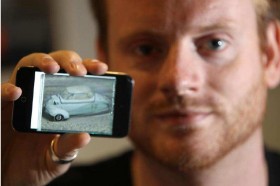
3:00 pm to 4:00 pm
Event Location: TBA
Bio: Gordon Wetzstein is a Postdoctoral Researcher at the MIT Media Lab. His research interests include light field and high dynamic range displays, projector-camera systems, computational optics, computational photography, computer vision, computer graphics, and augmented reality. Gordon received a Diplom in Media System Science with Honors from the Bauhaus-University Weimar in 2006 and a Ph.D. in Computer Science at the University of British Columbia in 2011. His doctoral dissertation focuses on computational light modulation for image acquisition and display. He organized the IEEE CVPR 2013 and 2012 Workshops on Computational Cameras and Displays and won a best paper award for “Hand-Held Schlieren Photography with Light Field Probes” at ICCP 2011, introducing light field probes as computational displays for computer vision and fluid mechanics applications.
Abstract: With the invention of integral imaging and parallax barriers in the beginning of the 20th century, glasses-free 3D displays have become feasible. Only today -more than a century later- glasses-free 3D displays are finally emerging in the consumer market. The technologies being employed in current-generation devices, however, are fundamentally the same as what was invented 100 years ago. With rapid advances in optical fabrication, digital processing power, and computational perception, a new generation of display technology is emerging: compressive displays exploring the co-design of optical elements and computational processing while taking particular characteristics of the human visual system into account. In this talk, we explore modern approaches to glasses-free 3D display using compressive light field displays. In contrast to conventional display technology, these systems aim for a joint-design of the display optics and computational processing – a concept that has been exploited for image capture in computational photography for about a decade.
